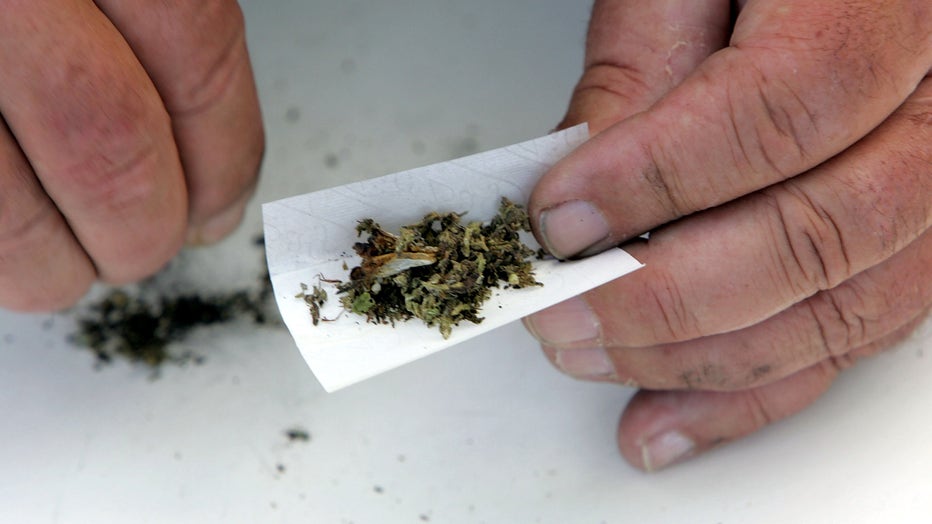Gov. Whitmer signs 'clean slate' bill to erase marijuana convictions
SOUTHFIELD, Mich. (FOX 2) - Michigan Governor Gretchen Whitmer is signing multiple bills on Monday that will erase some crimes for people convicted of marijuana crimes.
Once signed into law, Michigan will automatically expunge criminal records and ease the application process for those convicted of marijuana offenses the sweeping "clean slate" bills.
Gov. Gretchen Whitmer signs ‘clean slate’ law
Thousands of people in Michigan who have been convicted in the past of low-level crimes will soon have them automatically expunged from their records under the state's new 'clean slate' law.
Whitmer will sign six bills that will reform the state's criminal justice system including one that will allow past marijuana offenses be expunged from the record. The bill does not apply to felony convictions that resulted in a sentence of ten years or more.
Included in the bill is allowing a person to set aside one or more marijuana offenses if the offense would not have been a crime if committed after December 6, 2018, when recreational marijuana use by adults became legal in the state
The marijuana bill was introduced in October 2019 by the late Rep. Isaac Robinson. After a series of hearing through the House, it was approved on November 5, 2019, and sent to the Senate for consideration. The bill wasn't discussed until June 24 but wasn't read in the Senate for consideration until September 23 when it passed with 35 yea votes to 2 nays.
“This is a historic day in Michigan. These bipartisan bills are a game-changer for people who are seeking opportunities for employment, housing, and more, and they will help ensure a clean slate for hundreds of thousands of Michiganders,” said Governor Whitmer. “This is also an opportunity to grow our workforce and expand access to job training and education for so many people. I am proud to sign these bills today alongside Lieutenant Governor Gilchrist and many of the bipartisan leaders who worked on them.”
Gilchrist said during Monday's signing that the laws disproportionately affect people of color and that, by signing these bills, it opens up doors for many people who have been dogged by prior convictions.
“This anti-poverty, pro-job opportunity Clean Slate legislation will reinvigorate the economic potential of hundreds of thousands of Michiganders whose records have hindered their availability to get a job or secure housing, and it will help us grow our workforce,” said Gilchrist. “This is the right thing to do on behalf of people everywhere who deserve another chance, and will help improve livelihoods. There is more work to do, but Michigan has now established itself as a leader in removing barriers to economic opportunity for people who have made mistakes. I will continue to stand tall for Michiganders across the state who need someone in their corner.”
Under the automated expungement process, which would begin in approximately 2 1/2 years, people convicted of crimes would not have to apply. Their conviction would be cleared seven years after their misdemeanor sentence, and, in the case of a felony, 10 years after their sentence or the conclusion of their prison term, whichever occurred last.
In Michigan, an expungement -- or set aside -- clears the public record of a conviction so it does not appear in a background check. Law enforcement still keeps a non-public record, but people no longer have to disclose their criminal past on job applications or other forms.
Whitmer said in November 2018, right after she was elected governor and the same election day that Michigan voters approved recreational marijuana, that she would consider pardons for marijuana convictions.

Another bill the governor will sign will address felony charges and would require that more than on felony offense or more than on misdemeanor offense be treated as a single conviction if the underlying offense occurred within 24 hours and arose from the same events.
The bills passed with at least 93 votes in the 110-seat House on September 24 and at least 29 votes in the 38-seat Senate the day before.
John Cooper, executive director of Safe & Just Michigan, which advocated for the clean-slate legislation, called the automatic-expungement bill the most expansive passed in any state. Other states only seal misdemeanors -- not felonies -- and unlike Michigan, exclude people from eligibility if they have unpaid fines, fees or restitution, he said.
Information from the Associated Press was used in this report.

